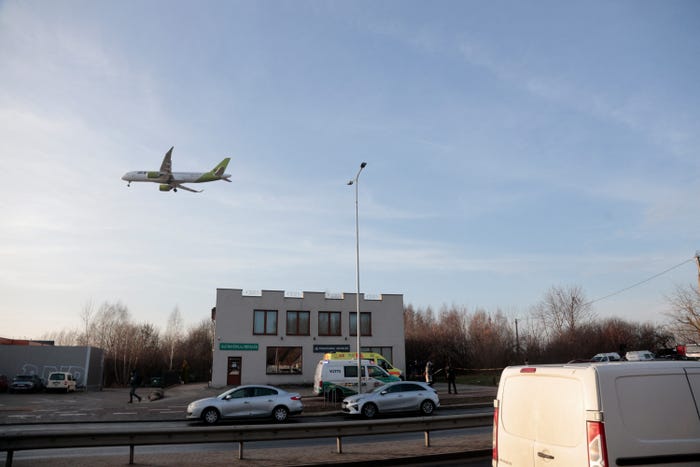UPDATE: Lithuania has shut down Vilnius Airport for the third consecutive night due to balloons entering its airspace from Belarus, prompting urgent safety measures. The closure took effect from 9:42 p.m. to 4:30 a.m. local time, impacting approximately 47 flights.
Authorities confirmed the decision was made following reports of helium-filled balloons flying over from Belarus, which are believed to be linked to illegal cigarette smuggling. Lithuanian Prime Minister Inga Ruginiene condemned the situation, blaming Belarusian leader Alexander Lukashenko for allowing these balloons to “run wild.”
This alarming situation escalated earlier today, as Ruginiene stated that a significant number of “smuggling meteorological balloons” have been launched into Lithuania. The prime minister emphasized that the ongoing threat to air safety is unacceptable, calling for immediate action.
In addition to Vilnius, the Kaunas Airport also faced temporary closures due to the balloon incursions. Ruginiene announced that Lithuania is temporarily closing its borders with Belarus as the national security council convenes to discuss the next steps in response to this escalating issue.
Lithuania has dealt with balloon incursions from Belarus for some time, with officials reporting that 250 balloons crossed the border in just one month last September. However, the frequency of these incidents has increased, prompting heightened alerts among the Baltic states regarding airspace violations, particularly from Russia, which counts Belarus as a key ally.
In a statement released earlier, Lithuanian authorities noted that several hundred markers indicating potential smuggling activities were detected in a single night. These balloons often carry GPS trackers, enabling their cargo to be monitored, posing a significant risk to national security.
As of now, more than 100 individuals have been arrested this year for air smuggling, with 20 convictions already secured. The Lithuanian government is now urging tech companies and defense contractors to propose innovative solutions for tracking and neutralizing these balloons.
The balloon threat is part of a broader pattern of aerial incursions troubling NATO allies, especially following a series of drone incursions over Poland in September. Similar incidents have been reported in Denmark, indicating a regional security concern.
In an unexpected twist, other countries have faced similar airborne challenges. Last summer, South Korea accused North Korea of deploying hundreds of balloons to scatter garbage over the Seoul area, illustrating the diverse tactics used in modern gray warfare.
The clock is ticking as Lithuania grapples with the implications of these balloon incursions. With the nation on alert, further developments are expected in the coming hours. Stay tuned for more updates as authorities take decisive action to safeguard airspace and national security.







